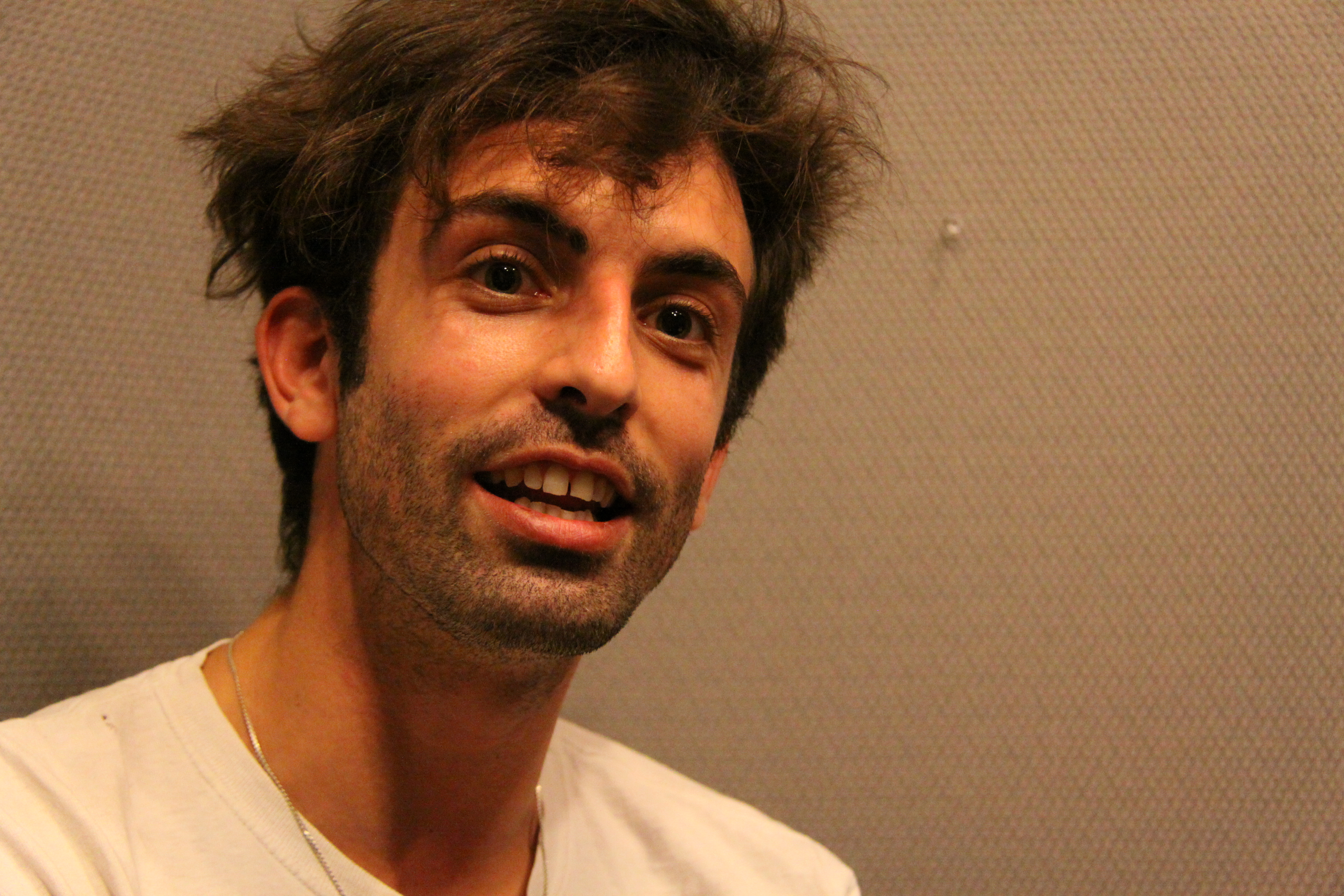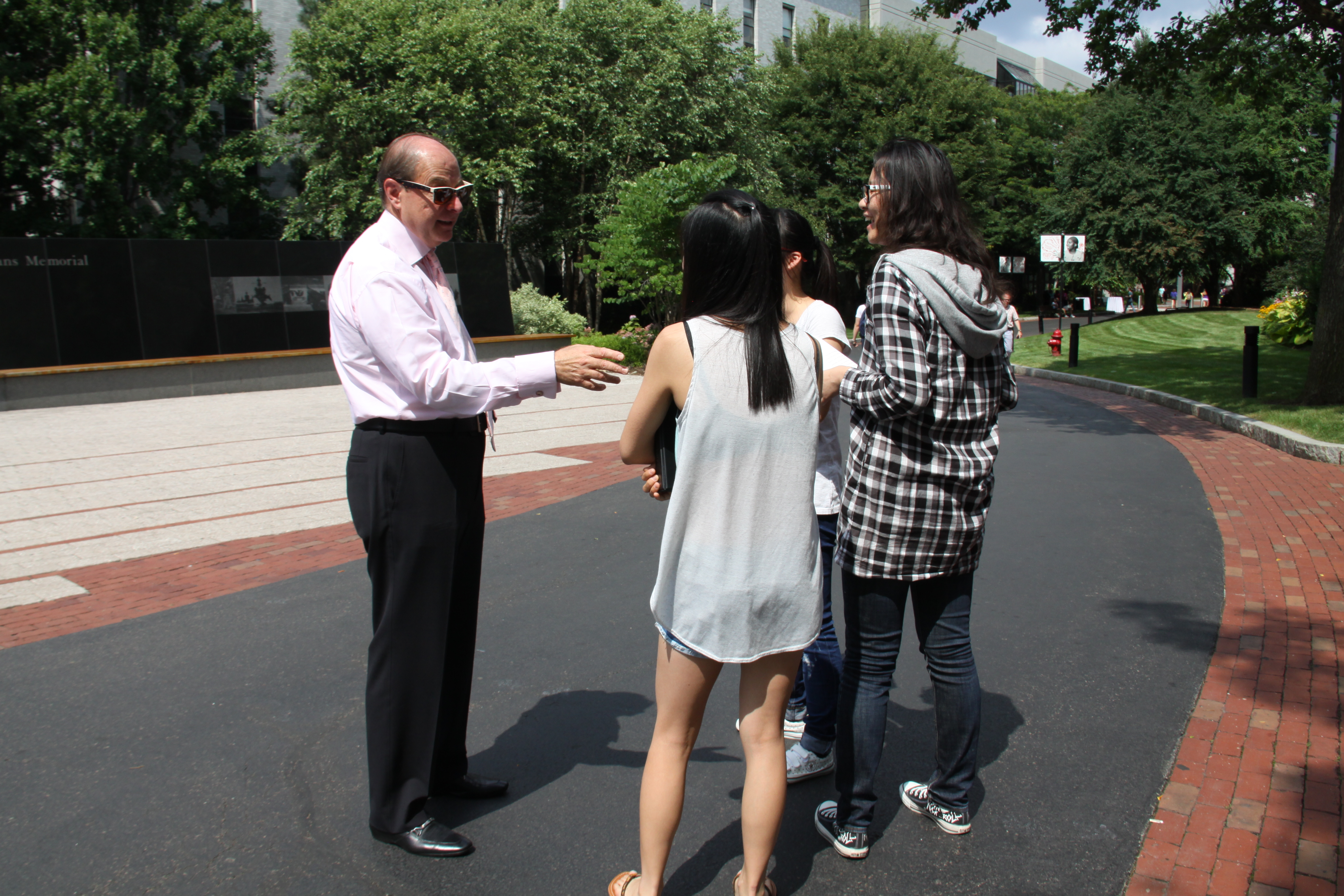
Max Geller, president of Students for Justice in Palestine at Northeastern, says administrators have stifled the group's right to protest on campus.
Students are moving into dorms, apartments and houses, getting ready for the new school year, but a debate over free speech last semester still lingers at Northeastern University, where a group of pro-Palestinian students says administrators have stifled its free speech.
Back in April, the group Students for Justice in Palestine staged a walkout of a presentation by Israeli soldiers inside a lecture hall at Northeastern. Their goal, they say, was to protest human rights abuses in the Middle East. More than 20 students marched out. Some captured video with their smartphones. Others heckled the soldiers, calling them criminals.
"They’re not welcome on our campus," some shouted. "Free! Free! Palestine!"
The lecture went on as scheduled, but a few days later Northeastern put the group on administrative probation. That means it could be suspended for another offense. The university also required the group to come up with a civility statement.
"These sanctions are unfair and we have no intention of going quietly," said Max Geller, a second-year law student and president of the pro-Palestine group at Northeastern. Geller says this isn’t just a Palestinian-Israeli issue.
"This is a big guy versus little guy issue," he said. "The university should take a positive step and define itself by its vigorous enshrinement of the First Amendment."
These heated protests surrounding hot-button issues like the Israeli-Palestinian conflict are not rare on college campuses. Last month, pro-Palestinian protesters accused Florida Atlantic University of violating their first amendment rights. In 2010, a group of Muslim students at the University of California at Irvine heckled the Israeli ambassador to the U.S. Ten of the 11 students were found guilty of misdemeanors.
But wait a minute — aren't college and university campuses an iconic, if not historic, place where protests occur, where students assemble to hear ideas by provocative speakers, pass out leaflets, or even stage sit-ins to make a point?
Greg Lukianoff, president of the Foundation for Individual Rights in Education, and author of a book about fighting abuses of free speech at colleges and universities, says not anymore.
"When you stifle speech on college campuses, the negative effects bleed into larger society, and I think you can see a lot of those negative effects today," he said.
Lukianoff says the state of discourse on college campuses is often related to what he calls the increased bureaucratization of universities.
"They do act more like mega-corporations, in some ways, than places that foster debate and discussion," he said. "They are very concerned about their image as well, which they oftentimes use as an excuse to punish students for saying the wrong thing — or saying something that they dislike."
And at a time of polarized debate, Lukianoff says censorship is not only antithetical to higher education, but it reinforces a bad habit that, he says, Americans have already developed.
"It encourages us just to talk to the people we already agree with, which is not something higher education should be engaged in," he said. "It should actually be teaching us to seek out people we disagree with."

Northeastern President Joseph Aoun interacts with students.
So what's behind Northeastern's decision to put Students for Justice in Palestine on administrative probation? I caught up with Northeastern President Joseph Aoun as he walked across brick-covered paths, wearing Ray-Bans and engaging summer students.
Aoun says the university has addressed the consequences of the walkout by holding open meetings on diversity led by former Massachusetts Gov. Michael Dukakis.
"We’re not going to accept discrimination," Aoun said. "We’re not going to accept intolerance. It’s as simple as that. That’s our mission. Our mission is more important than our image."
Aoun says Northeastern shouldn't be expected to be a microcosm for society as the Israeli-Palestinian debate rages on elsewhere.
"We have to be a model for society," he said. "And if every time a person feels excluded, that’s a failure that we have to address. Even though it’s not a reality, perception is important and we have to work on that."
Still, Geller says the group has no plans to issue a civility statement for the university.
"It’s time to read the writing on the wall," Geller said. "Stifling our speech is going to have a more negative effect on your institution than it is on our cause."
The Massachusetts chapter of the ACLU agrees, arguing the university has shown a pattern of discrimination against the group and has potentially violated the Civil Rights Act. The ACLU says it’s preparing to file a lawsuit against Northeastern.










